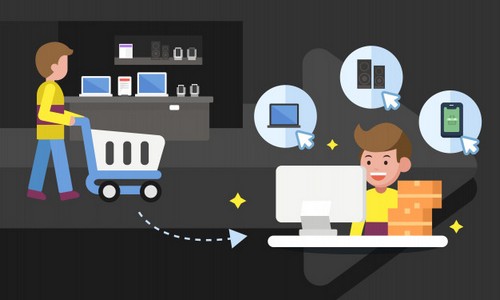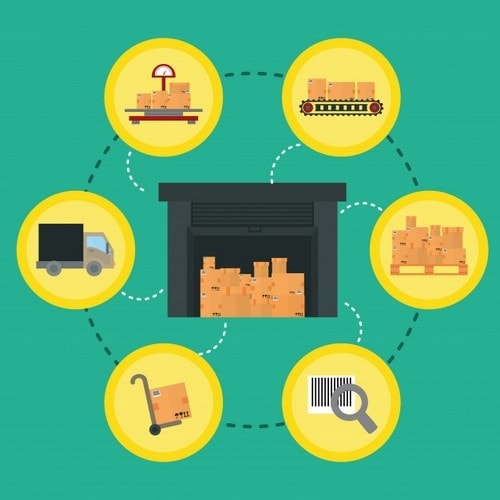The means to sell a customer is called a sales channel. The sales channel is different from the distribution channel which includes the customer delivered with an obligation. The sales channels is nothing but it is about closing a sale. More often than not, companies resign on third parties in order to sell their products or services they can be affiliate partners, resellers, stockists, distributors or independent retailers basically all the entities that do not work directly for the organization.
Choosing the correct Sales channels is very crucial for business since it is one of the important determinants in the success or failure of the product and business. There are multiple sales channels available for almost every industry.
Table of Contents
Important elements of sale Channels For your marketing strategy :
- Sales channels are nothing but a pathway by the way of which the services or the products go from the manufacturer to the customers or to the end users.
- The flow of services or goods is usually unidirectional that is from manufacturer to the customers only. In certain cases, or in cases of product deficiency the floor maybe opposite. But the ratio of backward flow is very less as compared to the regular flow.
- The sales channel is a combination of multiple intermediaries who are also termed as middlemen who participate voluntarily in the flow.
- Achieving of the mutually acceptable the objectives is what the channels and its components try to achieve. On the other hand, they also try to achieve the focus of the manufacturer whose focus is to achieve the management decided marketing objectives.
- A pre-decided and mutually acceptable Standard Operating Procedures (SOPs) are used by the manufacturer who has the channel support along with a contractual stipulation or a trade customer. Thus the company act as the caption of the channels and the pathways managed by it.
- The possession of goods and transfer of ownership is facilitated by the middlemen from markets to consumers.
4 Main Functions of Sales channels utilized for your marketing channel strategy :
1) Storing or accumulation :
Accumulation is bringing of multiple products which are similar together into the large homogeneous supply. This process also termed as concentration.
2) Sorting out :
It involves breaking homogeneous via inspection or grading.
3) Assorting :
It is an assortment of various but related products in order to form a stock or an intermediary. Assortment at the manufacturer level is driven by production technology and in case of consumer and assortment is covered by the consumption pattern. These are the discrepancies which create possible opportunities for sales channels to enable them to participate in the process of distribution.
4) Allocation :
It is nothing but sorting and breaking of similar products from the accumulated products into smaller and similar products. It is also termed as dispersion.
Sales channels play a crucial role in achieving the marketing objectives of an organization. Undoubtedly the producer of a product or service creates utility but the sales channels are responsible for creating time and place utilities which is beneficial for the sales. In terms of large or wide markets like consumer goods sales channels are supposed to have a crucial role in terms of effective execution of management goals, marketing plans, and management strategies.
The sales channels are the ones which perform the following marketing functions
- Matching of goods to the market requirements
- Searching of sellers and appropriate buyers
- The offering of products and services in the form of small utilizable packages which are accepted by the consumers.
- Influencing and persuading the prospective buyers to favor certain products.
- Implementing pricing strategies in order to make them acceptable to the buyers and have effective distribution functions as well.
- Active participation in market creation for a new product, to attract more customers.
- Transferring the latest technologies to the users and to ensure the supply of products.
- The offering of pre and post sales services to the customer.
- Providing feedback and other relevant information from the market and also acting as marketing intelligence and also providing proper and effective Sales forecasting.
- Offering credit to consumers or to retailers as required and bearing risk with reference to the stock and its transport.
Other Advantages of Sales Channels
1) Salesmanship is better :
These channels play a crucial role in being a sales agent which assist with placement of innovative products in the market. They are also specialized in selling and promoting the products by word of mouth and harsh your decision post-sales services to the customers. These channels are the ones that are in direct contact with the customers regularly and do their job very well by providing accurate and valuable feedback to the manufacturers.
2) Distributional efficiency is increased through marketing strategy:
The intermediate channels are the ones that ease the process of sales since there in direct touch with the end consumers. The gap between the consumers and manufacturers is narrowed down efficiently and economically by them and they decrease the number of transactions responsible for making the product available from the manufacturers to the customers. For example, if there are 4 companies who are considering to sell their products to four consumers, and if there is no sales channels involved then there could be possible 16 transactions involved.
But if a sales channels is involved the transaction number could be possibly reduced to it since there would be four transactions from the producer and four transactions or from the intermediary to the end consumer which will reduce the transportation costs along with efforts involved.
3) marketing and Sales channels present products that are required in assortments strategy:
Similar to the producers or the manufacturers who have expertise in producing a product the Sales channels have developed their own area of expertise. For example, the wholesalers are specialized in transferring or moving the products from different producers to multiple retailers. Similarity retailers are supposed to have a specialization in selling multiple goods in small quantity too many final or end consumers.
It is owing to the Sales channels and their presence that it is possible for the consumer to purchase the needed product at the time of need from a conveniently located store. These sales channels chop down the bulk and are able to meet the small number of demands from the end consumers.
4) channel also assistant merchandising of product :
It is due to the merchandising buses channels which increases the movement of the product from retail shop to the basket of the customer. When an end consumer approaches a retailer, he or she may be attracted to a possibly newly launched product or make it curious about it and switch over to the new product and choosing it over his regularly purchased product. This was made possible due to proper merchandising activity by the sales channels.
Importance of Sales Channels
The importance of sales channels is self-established as the product is produced in one part while the consumption is scattered in many places. The connecting line between consumption and production is where the sales channels fall.
There is always been an immense gap between the consumers and the producers. The sales channels connect the producers and consumers effectively.
Sales channels also play an important role in managing the consumer orientation demand that is their specialist in concentration equalization and dispersion. In other words, the correct the output of various producers divide the products according to the needs and wants of the consumers and dispersed them accordingly. The success of sales channels is completely dependent on the mode of are the type of sales channels that are chosen by the company. There are instances when the right choice of his channels has helped to grow the product immensely.
For example, Amazon and eBay are the largest e-tailers who have succeeded because they choose the right distribution strategy to the customer. They followed the next day delivery pattern which helps them to cater to the demands of a wide range of customers. The unique concept of delivery within 24 hours has helped them grow and become e-commerce giants.
Thank you for reading our overview article about marketing and product strategy.
Liked this post? Check out the complete series on Sales



